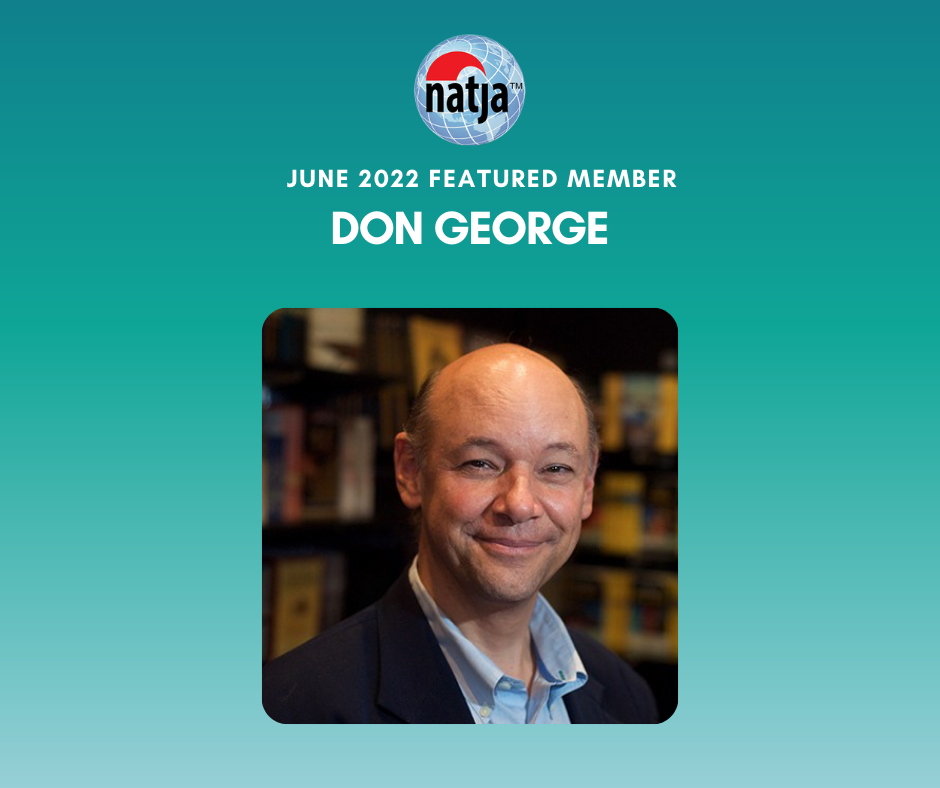Don George is the author of the award-winning anthology The Way of Wanderlust: The Best Travel Writing of Don George, and of How to Be a Travel Writer, the best-selling travel writing guide in the world. His most recent book is an ebook entitled Wanderlust in the Time of Coronavirus: Dispatches from a Year of Traveling Close to Home. He is also the editor of ten acclaimed literary anthologies, including A Moveable Feast, The Kindness of Strangers, and An Innocent Abroad. Don is currently Editor at Large for National Geographic Travel, and has been Travel Editor at the San Francisco Examiner & Chronicle, Salon, and Lonely Planet. In addition to his writing and editing, Don teaches travel writing workshops online and at Book Passage, and he leads tours around the world for National Geographic and for Geographic Expeditions. He is also the co-founder and chairman of the annual Book Passage Travel Writers & Photographers Conference.
1. What got you into travel writing?
I loved writing as a student in high school and college—mostly poetry—and I loved to travel. When I graduated from university, I went to Paris for the summer on a work abroad program, and then I went to Athens for a year on a teaching fellowship. I didn’t think I would become a travel writer—I didn’t even know a travel writer was something you could become. But I knew I wanted to see the world, and I was keeping journals. And I had an epiphany during that year that rather than studying worldly literature in musty, fusty, ivy-covered classrooms, I would be much happier studying in the classroom of the world.
Following that dream, I got a master’s degree in creative writing and then took a two-year fellowship in Tokyo, during which time my first fledgling travel stories were published. (My first published travel article, about climbing Mount Kilimanjaro, was written as an assignment for a non-fiction writing class in graduate school. I gave it to the travel editor at Mademoiselle magazine as a writing sample, and she ended up publishing it a few months later.) When my fellowship in Japan ended, I returned to the U.S. and a series of incredible serendipities led me to a job at the San Francisco Examiner. The travel editor was taking a leave of absence, and I was asked to take her place as a travel writer for that year. The week I was due to leave, the San Jose newspaper called me up and asked if I could temporarily take the retiring travel editor’s place while they looked for his permanent replacement. Incredibly serendipitous again. After a few months, an opening came up in the Examiner’s Sunday magazine, and I rejoined the paper. Soon thereafter I became travel editor there, and the rest is history. I’ve been incredibly fortunate to be able to do this my entire professional life.
2. What’s the most challenging part of being a travel journalist for you?
The most challenging part, as it has always been, is getting into the heart and soul of a place in a limited amount of time and then finding the right way to convey that heart and soul to a reader who has never been there. Of course, these days, finding publications that want that story about the heart and soul of a place is becoming more and more of a challenge too.
3. What is one thing [equipment or personal item] you can’t go without on the road?
My cell phone/camera/voice recorder.
4. What’s your most unusual and/or memorable travel experience?
It’s impossible to single one out, but the journey I made to Cambodia and wrote about for the BBC resonates very powerfully within me still.
5. How did you learn about NATJA and why did you join?
I have many friends who are members and it seemed like a good way to connect with the larger travel/travel writing community.
6. What is the best piece of advice you could give to a rookie travel journalist?
Pursue your dreams and find a way to make them come true. Also, take courses, attend conferences, and network.






